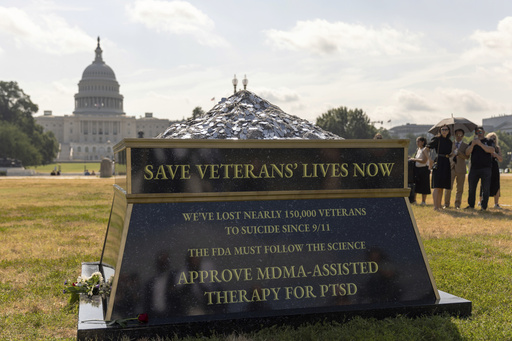The psychedelic community faced a setback when a Food and Drug Administration advisory committee voted against approving MDMA-assisted therapy for post-traumatic stress disorder. Despite the VA’s readiness to implement the therapy, concerns were raised about flawed data and research conduct, potentially leading to the FDA delaying or rejecting approval by mid-August. Combat veterans advocating for the treatment, commonly known as ecstasy or molly, expressed disappointment at the news.
MAPS, a key player in promoting psychedelic therapy, has faced scrutiny alongside the potential rejection of MDMA. Dr. Harold Kudler of Duke University raised doubts about the science behind the drug, suggesting that enthusiasm from advocates may overshadow scientific evidence. While MAPS declined an interview, it pointed to support from scientists and pharmaceutical executives endorsing MDMA’s approval.
The FDA panel also expressed concerns about alleged misconduct by MAPS-affiliated researchers regarding study results and patient coaching. Despite these challenges, Army veteran Casey Tylek credited MDMA-assisted therapy with significantly reducing his PTSD symptoms. While some researchers seek further confirmation of the therapy’s effectiveness through independent studies, supporters argue that delays could harm veterans in need of alternative treatments.
Jon Lubecky, a veteran who experienced success with MDMA therapy, emphasized the importance of the treatment for individuals struggling with PTSD. His advocacy efforts alongside organizations like Heroic Hearts Project aim to provide support for veterans seeking psychedelic therapy abroad due to limited access in the US. While MAPS has been instrumental in advancing research on psychedelic therapy, concerns remain about the approval process and ensuring rigorous study standards.
The future of MDMA-assisted therapy remains uncertain, with experts suggesting the need for additional research to address safety and effectiveness concerns. Despite setbacks, the exploration of psychedelics for mental health conditions continues to grow, with ongoing studies on substances like psilocybin and LSD. Dr. John Krystal of Yale University highlighted the importance of conducting future research in a manner that instills confidence in the medical community regarding these potentially groundbreaking treatments.
